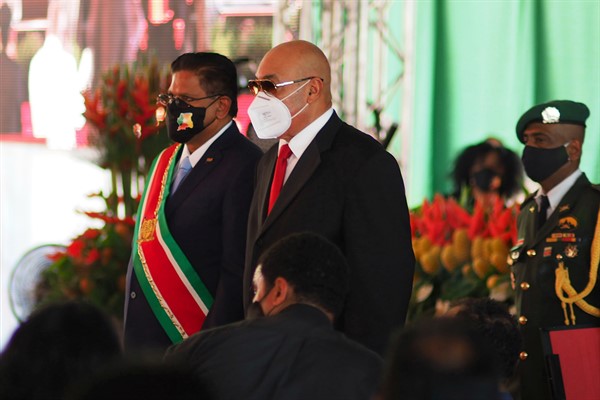On July 13, with a handshake and a smile, long-ruling President Desi Bouterse handed over the reins of power in Suriname to Chan Santokhi, a former police chief who has tenaciously pursued mass murder charges against Bouterse for the last 15 years. “It won’t be an easy job,” said Bouterse, who had a parting trick to play on his rival. When Santokhi turned up to work the following week, he found his new office stripped of its IT equipment.
Aside from procuring some new phones and computers, Santokhi faces three main challenges in governing this former Dutch colony on the northern shoulder of South America. He will have to decide on his predecessor’s legal punishment; find a remedy for Suriname’s desperate economic situation; and keep in check a divided coalition of political parties—including an ambitious and flamboyant vice president with a violent and criminal past—all while sidestepping Bouterse’s obstruction.
Santokhi’s Progressive Reform Party emerged from a general election in late May as the largest party in the 51-members National Assembly, but without an outright majority. The VHP, as it is known for its Dutch initials, took 20 seats, while Bouterse’s National Democratic Party, or NDP, saw its share fall from 26 to 16. Since the legislature elects the president in Suriname’s political system, that left Ronnie Brunswijk, leader of the General Liberation and Development Party—with eight seats—in the position of kingmaker.

